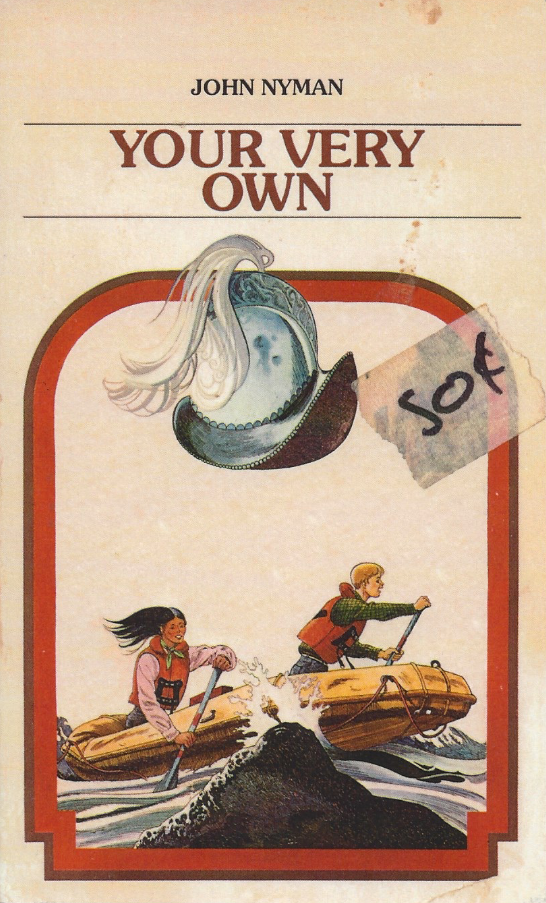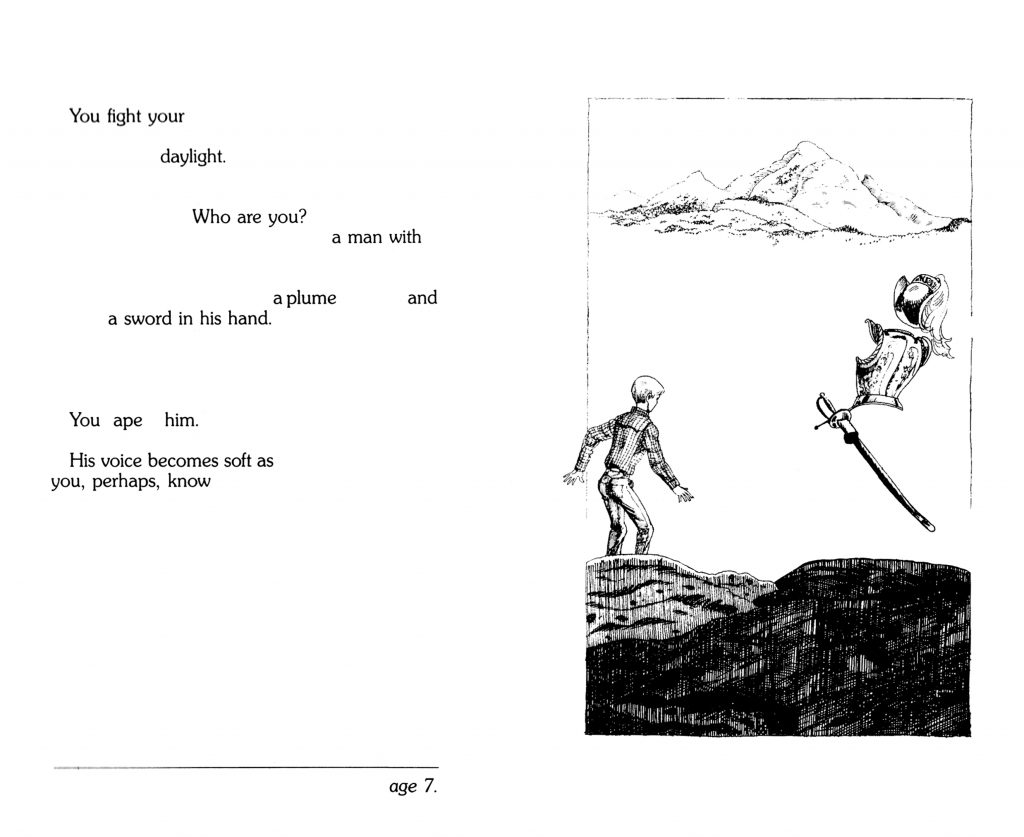
Your Very Own
Poetry, John Nyman, 52 pgs, JackPine Press, jackpinepress.com/product/your-very-own/, $30
Through erasure, removal and additions, Your Very Own sees Toronto poet (and Broken Pencil contributor) John Nyman create their own rendition of a 1980s ‘choose your own adventure’ novel. In this case, 1985’s Grand Canyon Odyssey, by Jay Leibold, which follows a daring river rapids quest.
Nyman primarily accomplishes new meaning in this retro tome by cutting out text, shearing whole pieces of the actual page, from the original book, leaving surviving words strewn across the pages in place. It creates its own, uncanny context. Where once upon a time there sat a rudimentary page about how much fun rafting down the river will be with spry adventurer Delia, Nyman creates a new moment of solemn introspection. “Delia…is quiet inside, and huge. A mountain…ten feet away.” (I’m not really capturing the effect here, so imagine those passages are split apart by chasms in the page).
As a physical object, Your Very Own is a handsome little book. Nyman effectively captures the “garage sale” vibe by having faux damage and a 50 cent sticker on the cover. The insides feel just as, if not more, authentic. The erasure of text and images, as well as actual cutting up of pages and scenes, feels like a book that has created itself in its journey to you. It’s an object unto itself. One that is inextricably tied to its prior form, but one that surpasses it all the same.

The narratives that Nyman finds through their erasure is one that supplants the somewhat stereotypical and white patriarchal norms that hang over the original Grand Canyon Odyssey and many 80s Americana quests. Here, Delia has an adventure of their own. Their relationship to the protagonist — effectively you the reader (if we stick with the conceit of choose your own adventures) — is one where they define themselves on their own terms. “I can’t promise I’ll be your guide. I’ve always wanted to leave,” they muse through a page of frayed text. The story is as much Delia’s as it is “your very own,” if not more.
In their author’s note, Nyman outlines their attempt with Your Very Own to excavate the depictions of whiteness, settler colonialism and patriarchy that exist within the original novel. The specifically identified “Navajo Indian who knows the secrets of the deserts and canyons of the Southwest.” They worry that their tools of erasure, whether they be working to rectify errors or bury truths are part of an endless process. That, “no quantity of whiteout will ever make up for injustice, no matter how many corrective layers are applied.” It’s a valid thing to worry about, but with how strong of a piece Your Very Own is, I think they’re choosing the right path.
